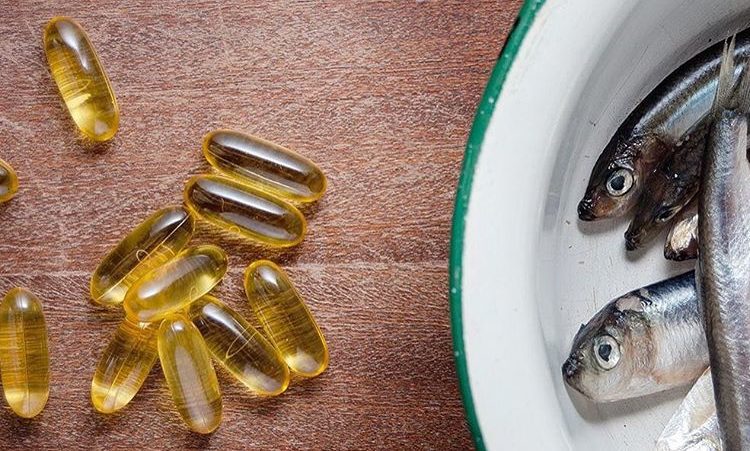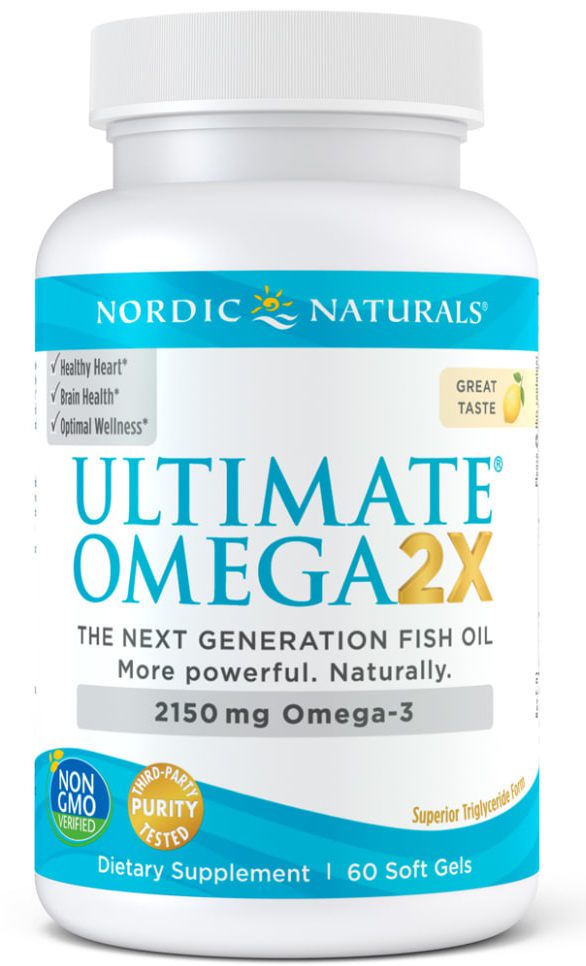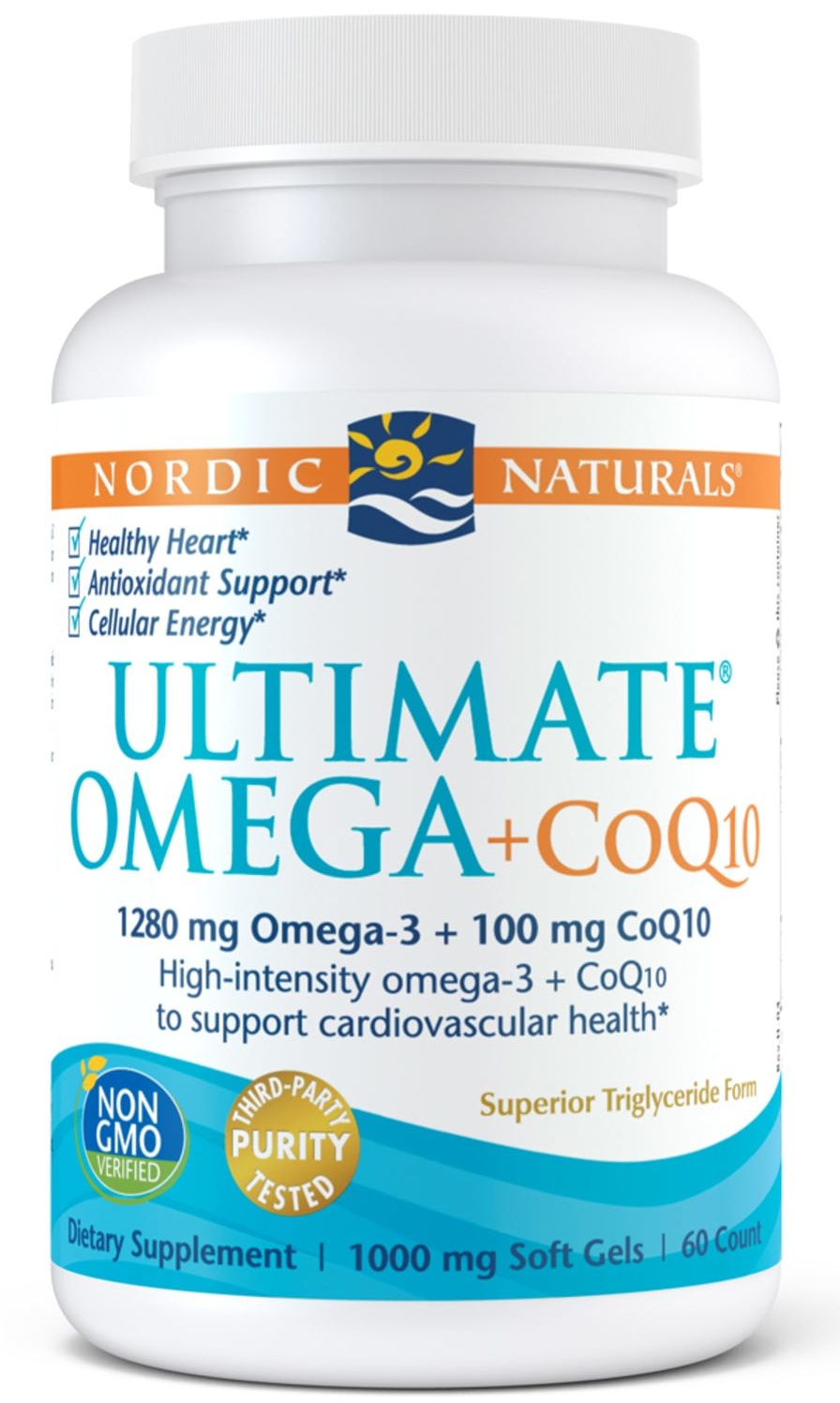February is American Heart Month. Did you know that heart disease is the leading cause of death for men and women? Together we can raise awareness about heart health and methods to prevent heart disease. Committing to eating a healthy diet is one of the very best ways to prevent heart disease. Always choose whole, unprocessed, organic foods whenever possible. Learn about supplements that can help to promote a healthy heart. As always, please consult your doctor before taking new supplements.

Photo courtesy of Nordic Naturals
Fish Oil
HOW IT WORKS: Oil from fish contains eicosapentaenoic acid (EPA) and docosahexaenoic acid (DHA); both are omega-3 fatty acids.

WHERE TO FIND IT: EPA and DHA are found in mackerel, salmon, herring, sardines, sablefish (black cod), anchovies, albacore tuna, and wild game.
DEFICIENCIES: Some researchers and doctors believe that most people who eat a typical western diet are likely to be consuming less-than-optimal amounts of EPA and DHA. To a limited extent, omega-3 fatty acids from vegetable sources, such as flaxseed oil, can be converted in the body to EPA.
BEST FORM TO TAKE: Fish oil supplements typically contain 18% EPA and 12% DHA, but there is variation between brands and types. Some preparations contain DHA without significant amounts of EPA, such as algae-based oils. To calculate how much omega-3 fatty acid is contained in a fish oil supplement, add together the amounts of EPA and DHA. For example, a typical 1,000-mg capsule of fish oil provides 180 mg of EPA and 120 mg of DHA (total omega-3 fatty acids equals 300 mg).
LOOK FOR THESE PRODUCTS: Nordic Naturals Ultimate Omega 2X, Nordic Algae Omega (vegan), Sunwarrior Algae Omega-3 (vegan)
Learn more about uses, potential interactions, and side effects in our comprehensive Wellness Guide.
CoQ10
HOW IT WORKS: Coenzyme Q10 (CoQ10) is also called ubiquinone, a name that signifies its ubiquitous (widespread) distribution in the human body. CoQ10 is used by the body to transform food into adenosine triphosphate (ATP), the energy on which the body runs.

WHERE TO FIND IT: CoQ10 is found primarily in fish and meat, but the amounts in food are far less than what can be obtained from supplements.
DEFICIENCIES: Deficiency is poorly understood, but it may be caused by synthesis problems in the body rather than an insufficiency in the diet.
BEST FORM TO TAKE: CoQ10 supplements come in either granular or oil-based preparations. Adult levels of supplementation are usually 30–90 mg per day, although people with specific health conditions may supplement with higher levels (with the involvement of a physician). Most of the research on heart conditions has used 90–150 mg of CoQ10 per day.
LOOK FOR THESE PRODUCTS: Natural Factors CoQ10, Nordic Naturals CoQ10 or Ultimate Omega + CoQ10
Learn more about uses, potential interactions, and side effects in our comprehensive Wellness Guide.
Magnesium
HOW IT WORKS: Magnesium is an essential mineral to the human body. It is needed for bone, protein, and fatty acid formation, making new cells, activating B vitamins, relaxing muscles, clotting blood, and forming adenosine triphosphate (ATP), which is the energy the body runs on.

WHERE TO FIND IT: Nuts and grains are good sources of magnesium. Beans, dark green vegetables, fish, and meat also contain significant amounts.
DEFICIENCIES: Most people don’t consume enough magnesium in their diets. Magnesium deficiency is common in people taking “potassium-depleting” prescription diuretics. Alcoholism, severe burns, diabetes, and heart failure are other potential causes of deficiency. Almost two-thirds of people in intensive care hospital units have been found to be magnesium deficient.
BEST FORM TO TAKE: Most forms of magnesium—including magnesium oxide, magnesium glycinate, magnesium aspartate, magnesium citrate, magnesium lactate, magnesium amino acid chelate, and magnesium hydroxide—are acceptable for supplementation. However, there are a few relevant considerations for each, which may be discussed with your doctor. The most popular forms are glycinate, citrate and amino acid chelate known for easy absorption. Many doctors recommend 250–350 mg per day of supplemental magnesium for adults.
LOOK FOR THESE PRODUCTS: Kimberton Whole Foods Magnesium Glycinate, Natural Vitality Magnesium Raspberry Lemon
Learn more about uses, potential interactions, and side effects in our comprehensive Wellness Guide.
Folic Acid

HOW IT WORKS: Folic acid is a B vitamin needed for cell replication and growth. Folic acid helps form building blocks of DNA, the body’s genetic information, and building blocks of RNA, needed for protein synthesis in all cells. Many doctors recommend that all women who are or who could become pregnant take 400 mcg per day in order to reduce the risk of birth defects. Some doctors also extend this recommendation to other people in an attempt to reduce the risk of heart disease by lowering homocysteine levels.
WHERE TO FIND IT: Beans, leafy green vegetables, citrus fruits, beets, wheat germ, and meat are good sources of folic acid.
DEFICIENCIES: Many people consume less than the recommended amount of folic acid. It has been suggested that increasing folic acid intake could prevent an estimated 13,500 deaths from cardiovascular diseases each year.
BEST FORM TO TAKE: Folic acid (vitamin B9) is the synthetic form of folate used in most supplements, and is the most studied form of folate. Some researchers have argued that methylfolate (also known as 5-methyltetrahydrofolate), which is a biologically active form of folate, is preferable to folic acid. However, there is little or no evidence that methylfolate is more effective.
LOOK FOR THIS PRODUCT: Kimberton Whole Foods Folic Acid
Learn more about uses, potential interactions, and side effects in our comprehensive Wellness Guide.
More information and references can be located on our Wellness Guide. Search by supplement for more information.





